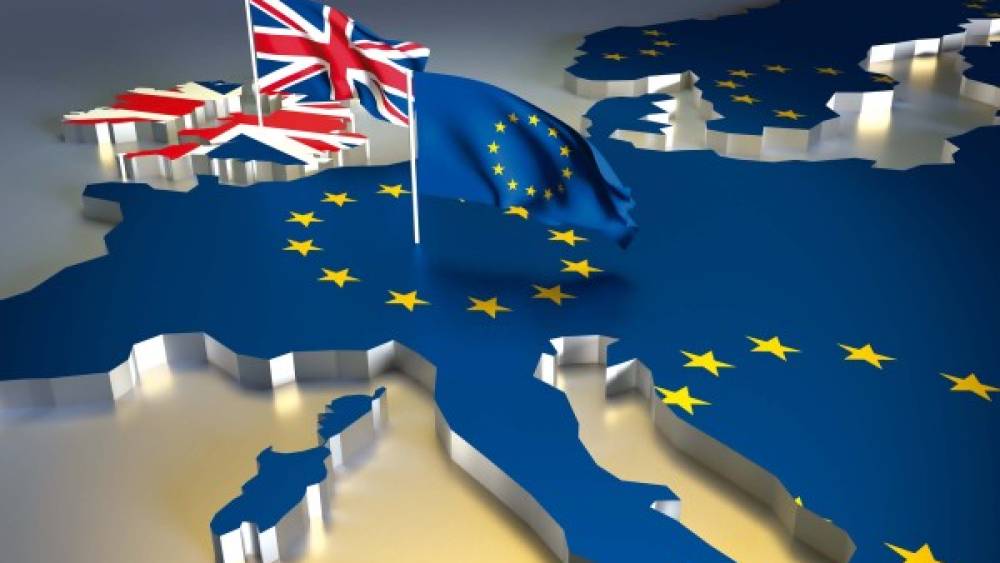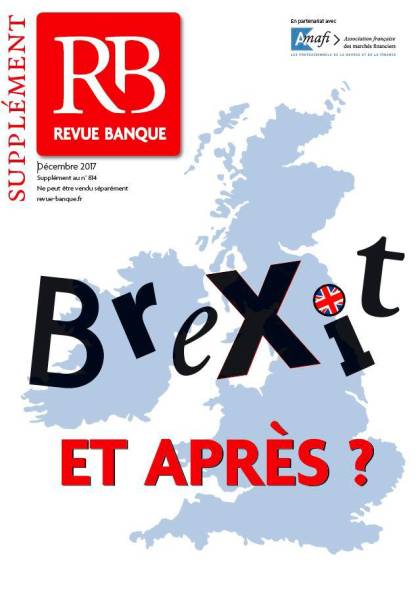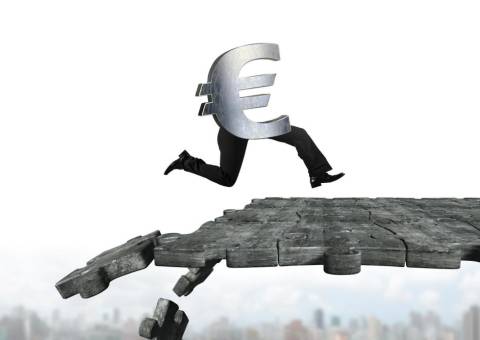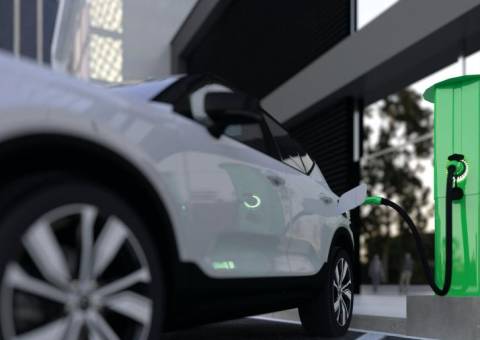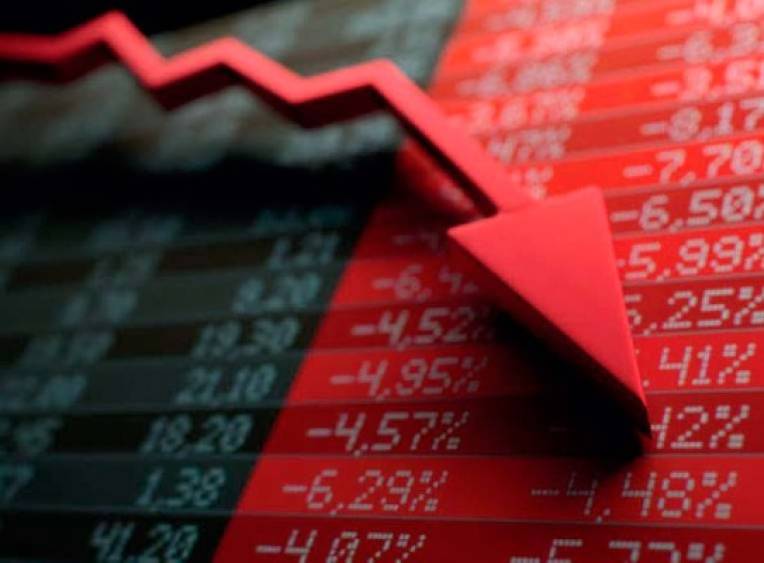If worst comes to worst, we could be approaching a modern-day equivalent to the retaliatory trade wars that, within the recent past, turned economic crises into major depressions. To be sure, the current dispute does not at first glance resemble a classic trade war, except in its potential severity. Nonetheless, the potential costs of a trade war can be enormous. To give but one example, the Smoot-Hawley Act of 1930, an American statute that significantly hiked American tariffs at the beginning of the Great Depression, provoked even more intense retaliation from Europe, the Commonwealth, and elsewhere. Although the American public may believe the Great Depression was caused by the Stock Market Crash of 1929, the conventional wisdom among economic historians is that the Great Depression was more directly caused (or at least deepened in its intensity and prolonged in its duration) by the Smoot-Hawley
Trade wars persist…
Such evidence suggests that trade wars are irrational, because the potential for unintended injury is vastly disproportionate to the gains to anyone. The vast majority of economists would agree with this assessment and hence favors free trade. Yet, even if irrational, trade wars still persist. The now infamous example of the Smoot-Hawley trade war, which is today universally understood as a classic blunder, did not stop later, smaller trade wars from erupting between the US and the EU, such as the “Chicken Wars” of the early
Why does this pattern repeat when the public always loses? The most logical answer
Brexit and Trump election : opening rounds in prospective trade wars
At this point, some will respond skeptically that I am overstating and that they see no trade war looming. But that depends on how we define the term “trade war.” To be sure, no impending battle looms over chickens, bananas or tariffs. The only approaching disputes, the skeptic will reply, are over principles. True, but this response too narrowly limits what a trade war—or, more accurately, a retaliatory economic rivalry—can be about. Fundamentally, such a conflict can be defined as the use of economic means (particularly, the imposition of restrictions on the free flow of goods or services) to obtain either economic or political objectives. Thus, the use of sanctions to punish a wrongdoing nation can spark retaliation, either from that nation or other affected third
That said, it also has to be conceded that the standard trade war begins very differently from the events that Brexit and President Trump have set in motion. Typically, special interests lobby the legislature for protection. Because legislators respond to the concerns of local constituents and because they can be pressured, influenced, or “bribed” more easily than the executive, they are usually the starting point for a trade war. Traditionally, the executive branch (including the kings of earlier political economies) is more likely to resist obvious rent-seeking because it sees the international dimensions more clearly and anticipates retaliation. But current events involve the reverse of this standard pattern. In 2016, two critical political decisions were reached—both unfortunate and potentially catastrophic—with the legislature being only remotely related to either story:
- First, in 2016, British voters narrowly approved a referendum to leave the European Union (with only 51.9% voting for exit). Parliament did not make this decision; it only authorized a democratic vote. Nor did the executive branch make the decision (as then Prime Minister Cameron, who opposed Brexit, resigned when the public voted for it). What motivated the British voter? Of course, there can be reasonable debate here, but probably most believe that fear of increased immigration into the UK was the primary catalyst, with a vaguer apprehension playing a secondary role that the EU was unduly usurping the sovereign powers of the UK government. In short, this was, in the language of US politics, a “populist” eruption, which surprised most observers;
- The second event in 2016 was also a surprise: the election of Donald J. Trump as President of the United States. Again, the legislature was not involved (and both political parties, at different points, were amazed at his success). Again, there was a populist eruption and a narrow vote, and again the fear of immigration was one of the primary forces propelling President Trump to his upset victory. Yet, probably even more important than the immigration issue was Trump’s defiant opposition to free trade. Not only did he promise to renegotiate (or simply renounce) the North American Free Trade Agreement (“NAFTA”), but he threatened to build an impenetrable wall on the US/Mexican border—thereby adding insult to injury. The “blue collar” or working class American voter, who traditionally was the mainstay of the Democratic Party, responded to these twin calls for reduced free trade and reduced immigration by defecting to the Trump camp, thereby shocking a very unprepared Democratic party that had not seen this coming. Since his election, President Trump has also pulled out of the Paris climate accord, and this could similarly precipitate a trade war involving Europe. That is, if American companies are not compliant with the Paris accords and thereby can produce products at lower cost, trading rivals might turn to punitive sanctions, including the much discussed “carbon
tariff.” Still, another scenario is that sanctions imposed by the US against firms trading with Russia could also trigger retaliation by the[10] EU. Finally, President Trump might cause the US to act in violation of the rules of the World Trade Organization (“WTO”) and refuse to comply or pay sanctions when ordered to do so. Irrational? Perhaps, but certainly well within the range of actions that President Trump is capable of taking. All these scenarios are possible, but it is still premature to predict that any will come to fruition.[11]
Standard weapons
Let’s return to Brexit. When the UK leaves the EU, it leaves behind the single market, and it is potentially exposed to tariffs and other costs that could be punitive (and might be seen in the UK as retaliatory). Such penalties or restrictions could be imposed for either of two reasons:
- to induce the UK to comply with political principles that are deeply held within the EU, particularly those regarding the free movement of persons;
- or to curb and restrain the UK’s ability to market products and financial services within the EU, as to which the UK today enjoys a dominant, world-wide market position.
How could those so motivated accomplish their aims? Traditionally, the standard weapons in a trade war are to raise tariffs or to impose occupational licensing requirements. The UK is much more exposed to the latter tactic. A retaliatory imposition of higher tariffs by both the UK and the EU would hurt consumers in both countries and politically would divide export-oriented firms from domestic production firms within the EU (the latter liking higher tariffs and the former hating them). Thus, licensing presents a more flexible weapon. As a member of the EU, the UK today possesses the “single passport,” which entitles companies licensed in the UK to market their services throughout the EU But in the event of a “hard” Brexit under which the UK departs both the common market and the customs union, companies (and particularly banks) based in the UK may have to open a branch elsewhere in Europe and become licensed in a EU member state in order to market their services throughout the EU Already, large American banks have announced that they will be moving significant operations to Frankfurt
Another tactic could be to require that certain activities must occur within an EU member state so that the activity can be directly monitored by EU regulators. For example, London is today the world’s largest center for foreign exchange trading (“forex trading”). But the EU is deliberating whether all such currency trading in the Euro must be cleared in the EU so that it can be
A negotiation conducted on two levels
Thus, the negotiation under Article 50 of how the E.U and the UK divorce will be conducted on two levels. On the level of high principle, many will insist as a matter of human rights that the UK must accept the free movement of individuals if it wishes to avail itself of the single passport. But, hiding behind these high principles, will be the more predatory motives of competitors and localities who want to exclude the UK from the EU market or at least to appropriate some of the UK’s dominant positions in derivatives, insurance, forex trading, and exchange trading. Here, the UK is precariously
I. Trade Wars: how do they play out?
To this point, it has been argued that rent-seeking underlies many economic rivalries, even when both sides refer to high aspirational principles to justify their positions. But how do such wars play out and how do they finally end? Here, a useful perspective is provided by game theory. Scholars of international trade have suggested that the antagonists will likely follow one of several strategies, depending on their relative positions. I will subdivide these into: the Game of Chicken; the Prisoner’s Dilemma Game; and the Stag Hunt
The Game of Chicken
In game theory, a “chicken game” involves two players, heading towards each other on a collision course. If the players continue on that course, the collision will injure both (but possibly to different degrees). To avoid collision, one must swerve, but this involves reputational loss (the one who swerves is the “chicken” and the other is deemed the
Applied now to international economic rivalries, if Nation 1 raises its tariffs, Nation 2 may retaliate and raise its tariffs in response. This is the equivalent of collision, as a mutually destructive trade war begins. But if Nation 1, in response to Nation 2’s actions, rescinds its tariff rise, it has cooperated, and no one is worse off (at least if Nation 2 drops its tariff increase also). If Nation 1 instead further increases its tariffs in response to Nation 2’s raise, the trade war has intensified, and both sides may wind up much worse off.
Games of chicken are rarely observed in economic negotiations, with the one exception that a large nation may raise tariffs against smaller nations, knowing that if the latter, smaller nation were to retaliate, it would harm itself much more than the larger nation. Possibly, this bullying strategy could appeal to President Trump in dealing with Mexico, as the US would lose less than Mexico (for whom US trade represents a much larger percentage of its total exports and imports). But this strategy makes much less sense for either the UK or the EU in the wake of Brexit, as both would face large losses from a retaliatory trade war.
The Prisoner’s Dilemma Game
This is the best known game in game theory, and it depends upon the fact that two sides cannot credibly communicate their intentions. Assume prosecutors suspect that Prisoner 1 and Prisoner 2 are guilty of a serious felony (and also lesser misdemeanors) and have apprehended them (but are keeping them apart so that they cannot communicate). If both Prisoner 1 and Prisoner 2 cooperate and neither confesses or implicates the other, they cannot be prosecuted successfully for murder, although they may be convicted of a misdemeanor charge carrying a one year sentence. However, if Prisoner 1 confesses and implicates Prisoner 2 (and Prisoner 2 does not confess), Prisoner 1 will be rewarded with a short 6 month sentence and Prisoner 2 will go to jail for 10 years. The same will happen in reverse if Prisoner 2 confesses and Prisoner 1 does not (that is, Prisoner 2 now gets 6 months and Prisoner 1 serves ten years). If both confess contemporaneously and implicate each other, each will receive a 3 year sentence. Obviously, the optimal strategy is to defect and implicate the other (which will result in either a 6 month or 3 year sentence). Cooperation makes little sense, because it will result in either a 1 year or 10 year sentence. In such a world, where neither can trust the other, the likely and rational outcome is for both to implicate the other and thereby receive the intermediate three year sentence. In short, cooperation is a mistake.
This game has been used to model many international conflicts, including trade wars. Here, mutual non-cooperation produces an intermediate (but suboptimal) outcome, whereas in the chicken game, mutual non-cooperation produces the worst outcome (a
The Stag Hunt Game
This game, derived from an example first described by Jean Jacques Rousseau, postulates that two hunters go out on a hunt. Each can individually choose to hunt a stag or a hare. Neither player knows the choice of the other, but the stag hunt will only succeed if the two players cooperate (but a hare can be captured by either player individually). Obviously, a stag is a greater payoff than a hare; but it is also more dangerous prey (making it safer to hunt the hare). Thus, if they cooperate and slay the stag, each wins a value of 2; if each hunts the hare, each obtains a value of 1, and if one hunts a hare and the other a stag (i.e., non-cooperation), the former obtains a value of one and the other nets
The point of this illustration is that it provides a counterexample to the Prisoner’s Dilemma Game (where the expected outcome is that the two players will not cooperate). Here, cooperation makes sense (but it is not inevitable). Of course, theorists of international trade tend to view free trade as a multi-party stag hunt game where all should cooperate to obtain the greatest payoff.
The Realist’s Critique
Not all scholars accept the liberal assumption that the Stag Hunt Game provides the better model for how individuals should decide whether to cooperate. These critics argue that “rent-seeking” trumps everything else, and makes game theory an unrealistic
In this light, what evidence of rent-seeking can be seen in the events leading up to both Brexit and Trump’s election? Did rent-seeking help cause either? In both cases, the answer is: very little evidence shows “rent-seeking” at a level that could begin to account for either outcome. In the case of Brexit, the British financial industry (and London as a political entity) adamantly opposed Brexit and lobbied against it. In the US, although many workers may have been opposed to free trade, unions almost uniformly supported Clinton over Trump. The American business community (or at least the largest public companies) also lined up largely behind Clinton, not Trump, because they strongly favored free trade (or perhaps because they had already built large plants in Mexico and Canada and did not want to pay high tariffs when they brought products or components back into the US). In the post-Brexit world, UK companies and the UK financial community appear to favor a “soft” Brexit. Indeed, the opposition to the UK leaving the single market or the customs union may help explain the weak showing made by Prime Minister Theresa May in the 2016 UK election. In short, although there may be abundant evidence of demagoguery and hypocrisy in both the US Presidential election and the Brexit vote, there is little evidence of “rent seeking” by economic groups organized behind an agenda to benefit themselves.
On the other hand, there is some evidence of “rent-seeking” in the European response to Brexit and Trump. A variety of European cities—Amsterdam, Brussels, Dublin, Frankfurt, Luxembourg and Paris (in alphabetical order)—are all busy soliciting American banks (and other financial firms) to shift personnel to their cities. The proposal to require clearing of Euro transactions in Europe similarly unites European financial firms that would like to acquire a share of the business now foreclosed to them because of London’s dominant position in forex trading. Similarly, derivatives trading might also be compelled to migrate to some degree to Europe if “rent seekers” can influence the EU’s rules. In the case of Trump, the EU’s threat to impose counter-sanctions in response to the US’s imposition of sanctions on firms trading with Russia can be at least partially explained as an effort by European firms (particularly those importing oil from Russia) to seek protection.
It is important here not to overstate. In Europe (and elsewhere), there is widespread dissatisfaction with (and even outrage over) the UK’s desire to have it both ways: to demand continued access to the single market while refusing to play by its rules on the free travel of persons within this market. A political consensus seems to exist within the EU that the UK must abide by the same rules as other nations if it wants access to the single market, and this has little to do with rent-seeking. (At the same time, however, there are UK firms—banks and agricultural interests—that favor the free migration of workers for economic reasons, because they need to import either financial specialists or migrant farm workers). Thus, the EU today has both a “political” camp whose members will resist a “soft” Brexit unless the UK makes some principled concessions and a less visible “economic” camp that sees Brexit as a once-in-a-lifetime opportunity to reduce the UK’s dominance in the financial services industry.
In the case of the EU’s reaction to Trump, almost everyone is offended by his brazen claim of “America First,” and most see him as the classic bully who wants to play the Chicken Game. Although there is little need to invoke the concept of “rent-seeking” to explain the opposition to Trump, at least some do want to profit from the EU’s response. Still, Trump is not responsible for everything that emanates from the United States. The pending legislation that will impose sanctions on those trading with Russia is being pushed not by Trump, but by a coalition of Democrats and Republicans who jointly resent Russia’s apparent interference in the 2016 US election. Few US business firms have any economic interest in sanctions.
The bottom line here is that there is little evidence of organized “rent-seeking” in the campaigns for Brexit or the Trump’s election, but considerable evidence of rent-seeking in the response to Brexit and possibly some evidence of it in response to Trump.
II. How will Brexit play out?
Several scenarios seem plausible. Let’s start with the premise that politicians would rather stall and delay than take clear-cut positions (and thereby suffer the possible adverse consequences).
The Endless Transition
The only sensible starting point is with the recognition that the UK is very exposed and at great risk in the continuing Brexit
This looming loss implies that, if the UK is able to act rationally, the UK must pursue a “soft” Brexit under which it remains in the single market and the customs union. Thus, when push comes to shove, the UK will be forced to accept the free movement of persons within the single market. But, because resistance to immigration was probably the force that best explains the vote for Brexit, the UK sometimes takes one step forward and then one step back, and it may need to disguise its concessions from its own voters. In late July, 2017, in a possible step towards compromise, the coalition seeking a “soft” Brexit transition within the Conservative Party seemed to gain the upper hand, with the announcement that the U.K would seek a multi-year transition during which the UK would remain a member of the single market and customs
This approach does suggest a way forward: namely, a policy of pursuing the longest transition possible. If the UK formally leaves the EU in 2019, but stretches out the transition so that it remains in the single market and customs union for an extended period (subject, of course, for that period to Brussels’s rules and the European Court of Justice), this would represent a very “soft” Brexit. The critical question will become the length of the transitional period, which may have to be extended repeatedly, given the difficulties in securing approval of the exit from all EU member nations. Eventually, during these repeated extensions, the political mood in the UK might shift, and Brexit might even be undone (or, alternatively, everyone may simply learn to live with a long-term transition that continues for decades). In short, the most benign scenario is that Brexit will prove more symbolic than real.
The Prisoner’s Dilemma Resurfaces
But there is at least one problem with this benign scenario: The UK could find itself caught in a Prisoner’s Dilemma. Assume that the UK remains in the single market as a non-voting member, contributing its share to the EU’s budget. It would thus remain subject to the European Court of Justice, but it would also be subject to possible retaliatory actions, based on “rent-seeking” motives. For example, the EU could require that Euro transactions must be cleared in a European country. In such an event, the UK would have “cooperated” (by agreeing to live with the free movement of labor within this market), but then found that others “defected” by imposing restrictive rules that, as a non-voting member, it could not block. At this point, it might react, seek a complete exit, and leave the single market. Of course, the European Court of Justice could again block any rule requiring Euro transactions to be cleared in Continental Europe (as it did in 2015). But with the UK no longer a voting member of the EU, it is far from obvious that the UK would enjoy the same rights or standing. That states both the problem and a potential answer.
If the UK perceives itself to have been “cheated” by rules or laws requiring, for example, the clearing of Euro transactions in Europe, can it respond with effective retaliation? The answer is clearly yes. The UK has long been the home of “regulation lite”—an approach to financial regulation that seldom imposed stiff sanctions and that sought to maintain a competitive advantage for London’s financial community by keeping the costs of financial regulation low. Brussels and the 2008 financial crash compelled the UK to tighten its rules and even, on occasion, to impose penalties. But, freed from Brussel’s oversight, the UK could return to its historic position as a “regulatory lite” environment. Indeed, its Chancellor of the Exchequer has made this
Compromise and Uncertainties
At the level of theory, the goal for proponents of free trade in game theory is to turn the Prisoner’s Dilemma into the Stag Hunt Game. This could occur by explicit agreement. The UK and the EU could agree that the European Court of Justice would give the UK the same protections that it had enjoyed as a member of the EU and they could explicitly preclude any rule requiring that clearing of Euros occur in an EU member country. Put bluntly, if we are to avoid the Prisoner’s Dilemma, each side needs some enforceable right by which to avoid “defection” by the other.
Unfortunately, this is easier said than done, as there is strong political support within the EU for such a Euro clearing
III. Trumping Free Trade
From the perspective of game theory, President Trump looks like an ardent fan of the Chicken Game. Bullying and forcing others to swerve seems his natural disposition. Logically, such a tactic should work against a much smaller adversary who can less afford to cut off or penalize trade with a much larger trading
Thus, what strategy should the EU adopt if it is faced with such an adversary? The simplest answer is to attempt to turn a bilateral game into a multi-player and multi-period game. In a multi-period game, it should become clear to all that retaliation produces counter-retaliation, and thus cooperation may be a superior strategy. In a multi-player game, the smaller countries can seek to coordinate their threatened retaliation against the large country that is trying to engage them in a Chicken Game. To be sure, the EU is already a coalition of smaller countries that can use this strategy. But more can be done. For example, if the EU can coordinate its threatened retaliation with the WTO, now the odds no longer favor the large nation willing to play Chicken (and in fact the costs could become prohibitive). The nuances involved in enlisting the WTO to ally with the EU are beyond the scope of this paper, but the basic strategy here is simple: Do Not Play Chicken on a Bilateral Basis, but Enlist Allies.
IV. Conclusion
A first conclusion seems both obvious and aspirational: Rent-seeking must be controlled, or it can turn a cooperative game into a Prisoner’s Dilemma and cause a cycle of continuing and worsening retaliation. One means of minimizing rent-seeking has historically been to shift power over trade negotiation to the executive branch from the legislature (because the latter was classically thought to be more vulnerable to
A second conclusion is that those expecting to be threatened should seek to make the process less bilateral and more multi-player. This tends to discipline those who feel they hold the advantage in a Game of Chicken, because they may face collective retaliation by the world. Not addressed by this broad prescription is the tactical question of “how to bell the
Game theorists tend to believe that the one natural solution to the Prisoner’s Dilemma is the iterated game. Repetition, they argue, will convince all in time to forego retaliation. The problem here is that the historical evidence reveals trade wars continuing for
A sensible compromise
What then seems the most sensible compromise for the near term? If the Brexit negotiators could agree on a three to five year transitional period, during which the UK would :
- continue to pay its share of the EU budget and remain subject to Brussel’s rules (including its rules on the free migration of persons within the single market) and the European Court of Justice;
- but would be protected by the European Court of Justice against retaliatory actions (such as requirements for clearing Euro transactions in Europe), that might be the optimal compromise for the short term.
This is not a long-term solution, but it is a start. What are the odds that sensible, far-sighted negotiators can reach a reasonable compromise that is undistorted by rent-seeking? Here, the debate divides between those who think politics is essentially emotional and irrational (and thus game theory does not apply) and those who think that, at least sometimes in crises, political leaders can focus on the long-term good of their society. Over its long history, the UK has had such leaders (but maybe none are in evidence today). Thus, history and realism compel the conclusion that the odds are no better than fifty-fifty. The at least equally probably prospect is that the EU penalizes the UK (possibly by moving Euro clearing to Europe), and the UK responds with a policy of significant financial deregulation coupled with tax advantages for foreign companies (particularly banks). This would attract companies back to the UK but could lead in time to another financial crisis on the scale of

